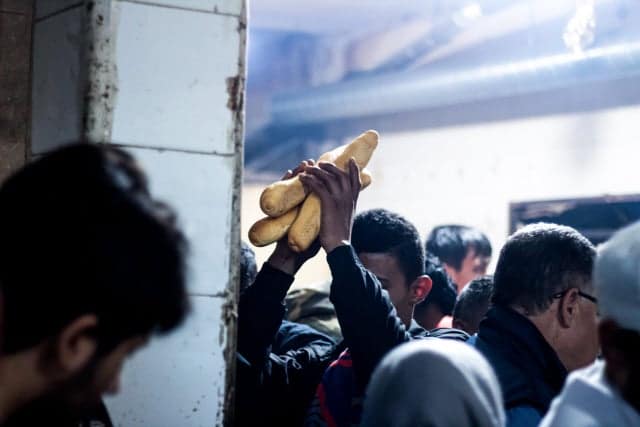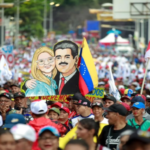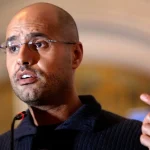
By Fadil Aliriza – Feb 27, 2022
In recent weeks, food markets in Tunisia have been rationing flour-based products, while bakeries have started rationing bread or raising the price of the staple baguette from 190 millimes to 250 or even 500 millimes. Bakeries say it’s because there is a shortage of subsidized flour, something the government has denied. Increasing international food prices and the Ukraine crisis are making wheat less affordable (nearly half of Tunisia’s wheat imports came from Ukraine in 2019). But another factor may be the recent inability to quickly pay shipsdocking at Tunisian ports that were carrying wheat and barley. The State’s Grains Office (Office des Céréales), in charge of managing the wheat market and which has a monopoly on importing wheat and barley, acknowledged there was a delay to making payments to six ships at Tunisian ports in December but insisted that the issue was eventually settled and the ships’ cargo was unloaded. Officials from the Grains Office were also quoted as warning that false reports about payment issues “can be exploited by suppliers to increase the prices of imported grains,” calling the issue of food security one of “national security.”
The issue of wheat is certainly one with wider political significance. The government’s sudden raising of bread prices in late 1983 and early 1984, after direct pressure from the World Bank and the International Monetary Fund (IMF) to do so, led to mass protests which the army put down with force, killing dozens. In 2019, Tunisia’s Truth and Dignity Commission (TDC)—set up to examine past human rights abuses—sent a memo to the IMF and World Bank asking for restitution for their roles in those deadly riots. The memo called on the institutions to compensate victims and cancel Tunisia’s “illegitimate debt.”
That debt is part of the current crisis. The Finance Ministry’s recent budget reports indicate that for at least a year, Tunisia has been paying more in foreign debt repayments than it is receiving in foreign loans. With new loans going to pay old debts, Tunisia appears to be in a debt-trap. In 2016, when Tunisia signed a major loan program with the International Monetary Fund (IMF), just over 5 percent of Tunisia’s GDP went to servicing its debt; but with every year of the loan program, that number has increased, jumping to almost 12 percent by 2021. Since that IMF loan ended in 2020, lenders have been increasingly reluctant to lend to Tunisia until it signs a new IMF loan, conditioned on structural reforms that would cut public spending and further privatize the remaining State-owned enterprises (SoEs). In fact, the State’s 2021 budget had initially expected Tunisia to receive 13 billion dinars in external loans to cover the budget; however by the end of November 2021, only 6.7 billion dinars in foreign loans had come into the Treasury. That means that the expected loans never came, according to researcher Maha Ben Gadha, who is also the economic program manager at the North Africa office of the Rosa Luxemburg Foundation in Tunis
“We didn’t receive the tranches or credit already promised. This is a strategy to suffocate the country,” Ben Gadha told Meshkal. According to her, Tunisia’s creditors have sent a message: “If you will not implement the structural reforms by the IMF, we will not fund you. You will find yourself in a situation where you will not be able to import wheat, you will not be able to import gas, and you will not be able to import medicine. So if you really need this money—and we know that you need this money—you should first have an agreement with the IMF and later we will come with other donations and other loans to refinance this gap in the balance of payment.”
RELATED CONTENT: Tunisia’s Popular Movement: Moroccan Normalization with “Israel” Betrayal

Credit Crunch
Without an IMF deal, Tunisia is being shut out of the international credit market in a way that Ben Gadha says could lead to more payment issues for vital goods like food. She points to the examples of the boats docked in Tunisian ports that had payment issues
Tunisia’s importers of wheat and other grains “were not able anymore to pay for their imports on credit, and this is why we saw some ships that were blocked at the ports: because they [suppliers] were not paid. This is also why we will, in the future, have more shortages in basic foods and basic stuffs that we are importing. Enterprises that were importing these products don’t have the right to import on credit anymore. Normally, [buyers] can get the product [immediately] and then three months later they can pay. But now, suppliers are imposing [terms] to have the money first and then to deliver the goods,” Ben Gadha told Meshkal.
While the government claimed that the December incident with the shipments of wheat products was eventually worked out, another report appeared in February of a ship with barley for animal feed stuck off the coast of Zarzis because of a delayed payment to the supplier.
“So we have this problem of a short-term credit lock [due to] the Moody’s downgrade,” Ben Gadha said, explaining that the October downgrade by the credit rating agency is part of why Tunisian importers are facing the credit crunch and why suppliers are demanding payment upfront.
In October, Moody’s downgraded Tunisia’s sovereign bonds, making it more expensive for the State to raise funds. At the time, Moody’s pointed to “protracted delays in reforms and reform-dependent funding which would erode FX [foreign currency] reserves through drawdowns for debt service payments, thereby exacerbating balance of payment risks.” In plainer language, Moody’s was suggesting that Tunisia is taking too long to reform its economy according to the conditions set by its creditors like the IMF and the European Union (EU); so to be able to keep making regular repayments on its existing debt, Tunisia has to dig into its foreign currency reserves. Foreign currency reserves are vital to paying for imported goods.
“Tunisia can no longer afford to have loans on the international market. So what are the other possibilities? To go to the IMF, or to go to bilateral lenders, or other multilateral donors,” said Ben Gadha.
But in some cases, bilateral and multilateral lenders and donors are explicit in conditioning their financing on Tunisia signing an IMF deal and implementing the demanded reforms. The EU’s 2020 Covid-19 assistance package of 600 million Euros, for example, was explicitly made “conditional upon a satisfactory track record of implementation of the commitments agreed between the Country [Tunisia] and the International Monetary Fund,” continuing a long history of the EU and IMF working together to shape Tunisia’s economy. The Memorandum of Understanding for the EU’s Covid-19 assistance package also detailed other specific reforms that the EU required of Tunisia and which the IMF has also been demanding, noting for example that to receive the money, Tunisia’s “Government will continue to implement the strategy for the reform of the civil service,” such as capping wages. Other things the Tunisian government will do according to the EU? Issue regulation to further phase out energy subsidies, something that the Tunisian government eventually did in a February 3, 2022 regulation laid out by the Ministry of Industry—almost exactly as stipulated in the EU’s action item 2 in their assistance package, according to researcher Maha Ben Gadha.
With conditions so clear, Tunisian authorities appear to see no alternative to an IMF deal, denying rumors of resorting to the Paris club group of international creditors to manage the country’s debt. Finance Minister Sihem Boughdiri, when pushed by a journalist from Mosaique FM, declined to outline a plan-B strategy in case negotiations with the IMF for a new loan don’t work out. The Tunisian Central Bank, for its part, has regularly urged the government to sign a new loan with the IMF, with its latest press release following an executive board meeting expressing “its strong concern about the delay in mobilizing the required external resources to finance the State budget for 2022,” and calling “upon all intervening parties to reach a consensus on the reform program helping to initiate negotiations with the International Monetary Fund on a new program.”
What the IMF Wants
The IMF recently concluded a virtual mission to Tunisia from February 14-22 to discuss an economic reform program. In early January, the anti-corruption group IWatch published a leaked “confidential” Tunisian government document: a 50-page slideshow presentation in French with the file name “IMF Program” and the title page “Reform Program for an Exit to the Crisis.” Days later, Finance Minister Sihem Boughdiri confirmed to Mosaique FM that the document was authentic and indeed a proposal for reforms that would meet the requirements of the IMF to secure a new loan program.
That document doesn’t address a comprehensive development strategy for Tunisia: trade is mentioned only indirectly in a graph showing the current account deficit on page seven; agriculture is mentioned only in the context of higher prices on page six, and industrial policy is left at vague mentions of “improving the value proposition” in a few key sectors while building on the neoliberal policies of incentivizing foreign investment and privatization. In contrast, where the document does get specific is in addressing the fiscal situation, something the IMF has repeatedly stressed as being Tunisia’s priority. In fact, the IMF appears to be assured that “the Tunisian government will take measures to improve Tunisia’s fiscal accounts, including through policies to further reduce energy subsidies in a socially conscious way and to contain the civil service wage bill,” according to the IMF website’s Tunisia country “Frequently Asked Question” section, updated April 10, 2020. The leaked document details this fiscal plan with numbers in spending cuts and price increases. This includes cutting energy subsidies and instituting automatic increases for the price of gasoline (estimated at creating an increase of 1.6 billion dinars in public finances).
The IMF insists that it does not impose conditions on its lenders, preferring to frame borrowing governments as having the “primary responsibility for selecting, designing, and implementing policies to make the IMF-supported program successful” according to the IMF website’s “factsheet” on conditionality (updated Feb. 2021). However, the official Tunisian document clearly states on page 41 that this increase in energy prices is a “precondition for the conclusion of an agreement with the IMF.”
In many reports both on Tunisia and other countries, the IMF and the World Bank have argued that energy subsidies disproportionately benefit the rich. However that is a premise based on calculations that don’t consider spending as a percentage of a consumer’s monthly income. While the richest quintile may benefit the most in absolute terms from energy subsidies, that doesn’t mean that as a percentage of their income and monthly spending they are benefiting as much from subsidies as the poorest quintile of the population. A draft study by researchers Chafik Ben Rouine and Jihen Chandoul on IFIs and social protection in Tunisia, soon to be published by the Friedrich Ebert Foundation found that, contrary to the IMF’s claims, subsidies are better at reducing poverty and inequality than targeted cash transfers. Even the World Bank, which has advocated for removing subsidies in favor of targeted cash transfers, found in a 2015 paper that for Tunisia, “raising electricity prices for consumers and removing subsidies for other energy sources would lead to a short-term increase in the poverty rate of 2.5 percentage points. In addition, compensation mechanisms that could be readily implemented (such as universal coverage or building on the existing health cards system) will not bring substantive counterweight to the increased poverty, even if all savings of reforms could be perfectly channeled as cash transfers.”
The leaked Tunisian government’s official program to the IMF also gets specific on freezing salaries (1.1 billion dinars) and recruitment in the public sector (415 million dinars) for 2022. All this focus on cutting the deficit may not have a meaningful positive impact on the debt overall, according to a study by Kristina Rehbein in a paper published by the Friedrich Ebert Foundation.
“All the internal ‘blood-letting’ would not even lead to a sustainable debt level according to the IMF’s own DSA standards, which sets the public debt burden threshold at 70 percent of GDP” notes Rehbein.
The leaked document does not provide specifics on privatization of State-owned enterprises, stating only on page 47 that the objectives include “restructuring public enterprises” and “disengagement of the State from non-strategic activities.” Last February, after a consultation between Tunisian authorities and the IMF, the IMF reported that Tunisian authorities have as their “objective…to divest” the State from the public sector and move towards privatization. Ben Gadha says there are specific plans already in motion to further privatize the remaining publicly-owned enterprises. Initial reforms toward privatization under the government of Prime Minister Mehdi Jomaa in 2014 and 2015 obliged the national electricity company STEG to seek loans on the international market in foreign currency, leading to some of the company’s current financial troubles, Ben Gadha noted. Now, Tunisia is planning to meet IMF demands to put these SoEs under a single agency which will manage their portfolios, as initially promised by Tunisia to the IMF to secure the 2016 IMF loan. The affected companies include STEG, STIR which refines petroleum, the Grain Office, the national airline Tunisair, and the National Tobacco Company.
“It depends on the sector because…privatization will not be specifically by opening the capital of some companies. It can be privatizing the sector itself. For example the energy sector is more profitable for foreign investors to be privatized on the level of power production of renewable energy more than in the distribution of electricity,” said Ben Gadha “So what they want to do is to let STEG continue to distribute the electricity to households and companies, but to give the possibility to private investors to [own] renewable energy [production] and to sell their products to STEG in foreign currency.”
Already STEG purchases Tunisian natural gas from foreign companies like the BG group (formerly British Gas) because the Tunisian National Oil Company (ETAP) waived its rights to the resources in what many allege is corruption in the hydrocarbon sector. STIR, the state’s oil refinery, also purchases Tunisian oil at international market rates using foreign currency, Ben Gadha said. There have been attempts to privatize the renewable energy sector and open it up to foreign ownership for years, and STEG purchasing Tunisian-produced renewable energy at international market rates from foreign companies would complete some of those efforts.
“So for some sectors like Tunisair it could be privatized, like the Régie Nationale des Tabacs [National Tobacco Company] it could be privatized, like [Tunisie] Telecom. But for STEG for example, where there is a profitable niche, when they can privatize it, they will do it. But for the non-profitable part—which is the infrastructure, the distribution, the maintenance—they will leave it to the STEG, always under the pressure of foreign [currency] reserve needs to buy the raw material and gas and electricity from the foreign investors and to still be…guaranteed by the State. And here comes the proposal of making this agency to manage the public debt and the shareholding part of the State in public companies. Because they want to manage the debt of these enterprises but they don’t want them to fail…taking the State hostage to always demand credit, to always be in this conditionality,” Ben Gadha explained.
On all these measures, the Tunisian General Labor Union (UGTT) has voiced its opposition, but it is unclear whether it will take concrete measures to stop them. For Ben Gadha, the UGTT has been slow to consolidate its position as it waited to conclude its highly contested annual congress and hold elections this February.
“I think that they are waiting to restructure themselves to have a more powerful negotiation position. They are—at the same time not opposing the president—but also they don’t want to be the only [party] responsible for what will happen in 2022. They know that there is a problem, that there is a crisis, that the IMF is asking for their deal and they are asking for their involvement in this so-called reform program,” Ben Gadha told Meshkal. “They want to have a margin of maneuver to say this is the responsibility of the government, of the president, and not ours. They are in a grey zone now and maybe in few weeks it will be more clear how they will position themselves. They know that they need to accept certain reforms, but they want the responsibility to be shared between different political stakeholders.”
Little Public Debate
While Finance Minister Sihem Boughdiri has been regularly giving interviews about the IMF discussions, there has been little public debate about the discussions or the proposed reform program needed to secure a loan.
“Public debate around economic reforms has kind of disappeared from the public sphere since July 25 because, whether you like it or not, the parliament had a space where you can have a debate over the economic policies of a given government,” Mouheb Garoui, cofounder of IWatch, told Meshkal in an interview.
IWatch leaked the government’s official “confidential” reform proposal to the IMF in January. Garoui said they could not know the intention of the leak—whether it was done on purpose or not—and he says opinions are divided with some speculating that the leak was intended to test reactions. However he did say that the government has not targeted IWatch with any legal challenges for publishing the document so far. But despite IWatch making the document public, this has not been enough to produce a broader debate, Garoui said.
“There was no debate over the finance law 2022; there was no debate over the budget, and there was no debate over the economic policies suggested and proposed by the government to the IMF. The public debate is no longer interested in having discussions on policy reforms,” said Garoui. “There is a lack of space, because the parliament as a building was a space for debate. And now, since then, the Presidency is kind of a closed room. You can never have access….IWatch, we don’t have any access to President of the Republic. They don’t have any spokesperson, and their relationship with media is not very good.”
The government has said it will include the UGTT and the Tunisian Confederation of Industry, Trade and Handicrafts (UTICA), the main national chamber of commerce/employers’ union, in discussions about the IMF program. When the previous government under then Prime Minister Hichem Mechichi sent a delegation to Washington in May 2021, the government had claimed the UGTT had been consulted, something that the UGTT denied. But for Garoui, even if the government does fulfill its promise of consulting the UGTT, that’s not enough.
“Saying that there will be discussions with UGTT or UTICA does not make it a public debate for us… Because here we are talking about lifting subsidies on energy, on basic nutritional products that touch each citizen and each taxpayer in this country,” Garoui said.
As for transparency from the IMF side, the former Resident Representative of the IMF in Tunis, Jerome Vacher, declined to speak with Meshkal as he was “not in a position to provide comments on Tunisia,” despite giving an interview to the news agency AFP in January. In that interview, Vacher reiterated previous IMF calls for “deep, structural reform,” and for cutting the public sector wage bill. The IMF’s new Resident Representative, Marc Gerard, did not respond to Meshkal’s request for an interview. An IMF media representative for the region directed Meshkal to attend the biweekly press conference held in Washington D.C. by IMF spokesperson Gerry Rice to pose our questions there. Meshkal registered using the online IMF Press Center system and received an email back on February 9 stating: “once your account has been approved, you will receive a confirmation via email;” however, at the time this article was published, we still had not received a confirmation email.
RELATED CONTENT: Tunisia Political Turmoil: President Ousts PM, Suspends Parliament
Alternatives?
Rather than taking out more loans to pay old debts, the Truth and Dignity Commission’s call for a debt cancellation—or even acknowledgement by the two IFIs of their role in past human rights abuses—has so far been ignored. Human rights concerns have continued to plague more recent IFI loans to Tunisia, with a 2018 report by a United Nations independent expert on foreign debt and human rights finding that the 2016-2020 IMF loan program “contains several measures that are likely to have negative impacts on the enjoyment of human rights.” A more recent call for debt cancellation came during the Covid-19 crisis from the Tunisian research institution Observatoire Tunisien De L’Economie, along with other signatories from around the world who noted how spending on debt repayments by Global South countries was coming at the expense of healthcare spending. Another research institution, the Food Sovereignty and Environment Observatory (OSAE) has long bemoaned Tunisia’s dependence on wheat imports, advocating instead for a policy of food sovereignty so Tunisia can feed itself without relying on foreign loans.
For Ben Gadha, whether Tunisia signs a new IMF deal or not, it will still have to meet at least some of the conditions of its creditors on debt management, restructuring, or default. For her, a more pressing step should be to look at the root causes that led to the current crisis and try to address them. President Kais Saied has recently brought up the issue of auditing the debt—a proposal which died in 2013 following political assassinations. For Ben Gadha, that proposal might have some good consequences “in terms of transparency, putting the creditors in front of their responsibilities.” But, she adds: “it’s not something that is really efficient.”
“Better is to stop the bleeding…to look at what are the real causes that put us in this situation of structural dependency and work directly on the reforms that will address these problems. Which means that if there are trade treaties that are harmful for Tunisia, we should renegotiate them. If there are illicit financial flows, we should set controls over the funds, over the transfer of funds abroad from offshore enterprises, auditing the flows of money that are going abroad,” she said. “It could be also to look deeper at the laws that were adopted in the period of 2014-2015 with Mehdi Jomaa that set up the legal basis for the STEG to borrow directly from the financial markets and be in this situation of indebtedness.”
Featured image: A man holds baguettes at a bakery in Kairouan that is rationing bread due to shortages in subsidized flour. Photo by Chahd Lina Belhadj, February 26, 2022.
(Meshkal)
- Orinoco Tribune 2





